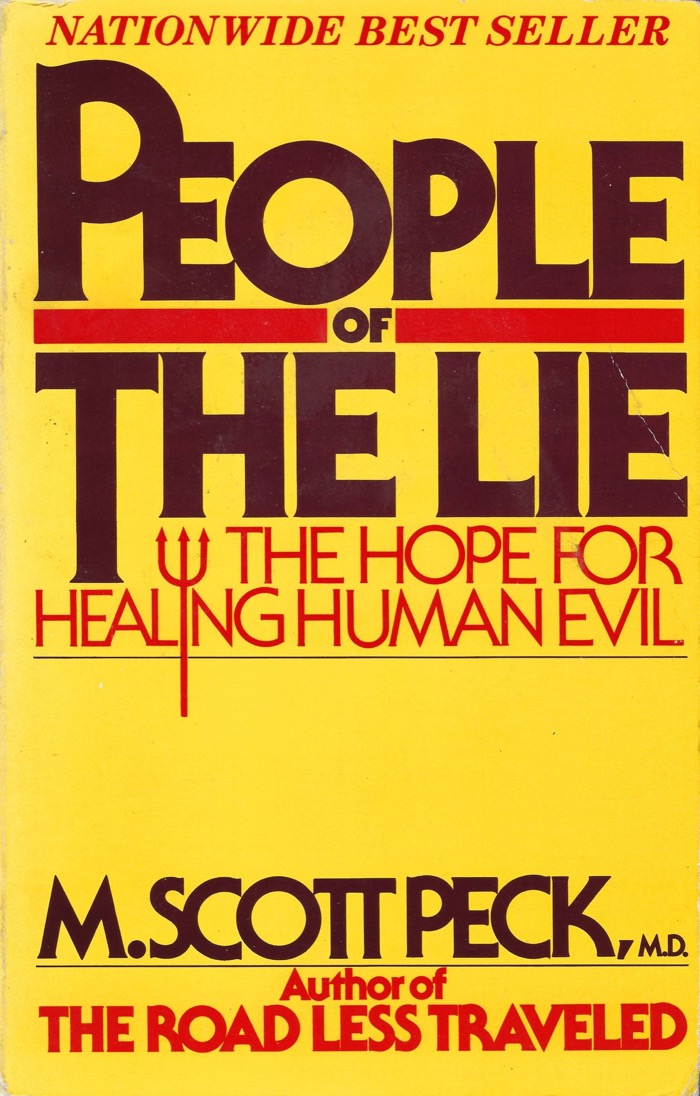People of the Lie: The Hope for Healing Human Evil
Reviewed date: 2019 Nov 2
269 pages
Peck examines a category of people that he labels evil. These are not necessarily monstrous evildoers; many are quite ordinary. But they display a constellation of symptoms that distinguishes them from the average sinner.
They are consistently destructive to everyone and everything around them. They are unreceptive to criticism or correction or advice. They are unwilling to accept the idea that they have done anything wrong. They are obsessed with appearing righteous--not with actually being righteous, but only the appearance of being so. Consequently, they can never admit to anything wrong.
In Peck's view, the pathology underlying these evil people is narcissism. Narcissism and laziness. They are too lazy to work on themselves, too lazy to do the hard work of facing their fears, understanding themselves, too lazy to admit that they need to change themselves. It's easier to externalize the problem and pretend nothing is ever their fault.
I would call these people toxic, not evil. I think that would communicate the essential characteristics more clearly. But quibbles about terminology aside, Peck's analysis here is helpful. There are some people who are different from the typical everyday sinner, and those people are dangerous.
Satan and the demonic
Peck does believe in Satan and in demonic possession. He's witnessed two exorcisms and he tells a little of what he's learned. The possessed are not evil, he says. They are victims. In fact, they may be (usually are, he thinks) essentially good people, saintly even. So the demon-possessed, while suffering terribly, are not evil; they are oppressed by an external evil.
Group evil: My Lai
Peck also examines the phenomenon of human group evil, using the massacre at My Lai as an example. He spends very little time on the specific sequence of events, that is, how the atrocity unfolded. Instead, he looks at the big picture--the American political landscape, the cultural attitudes, the makeup of the military, and the policies and procedures of the modern US military. The diffusion and dispersal of moral responsibility in any organization means that nobody is culpable and nobody feels they have the authority or the necessity of making moral choices. And with all those things considered, well, My Lai was inevitable. Peck figures it wasn't even unique. Similar atrocities on a smaller-scale were likely commonplace in Vietnam. (And we know they happened elsewhere, in Iraq and Afghanistan and hey, in Gitmo even as I write these words.) Nothing has changed.
